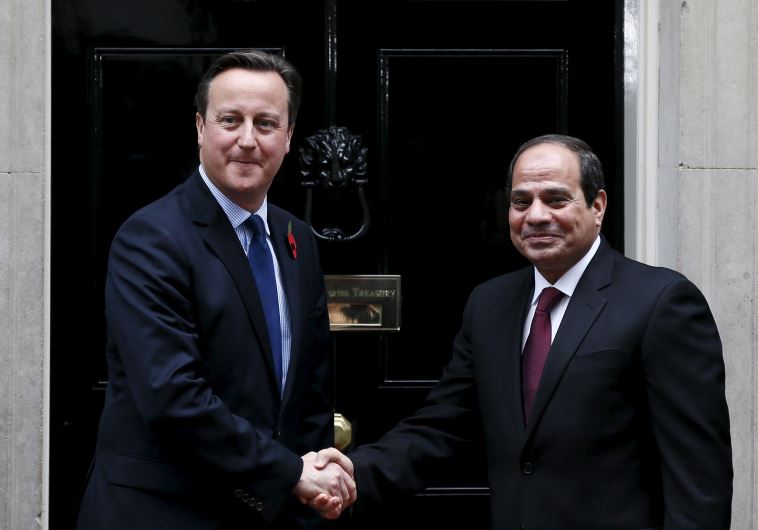Analysis: Britain’s Cameron under criticism for hosting Egyptian president Sisi
Sisi's trip is being seen as a further sign that the former general’s regime is being welcomed in from the cold by Western governments.
 UK Prime Minister David Cameron with Egyptian President Abdel Fattah al-SisiByROBERT SWIFT/ THE MEDIA LINE
UK Prime Minister David Cameron with Egyptian President Abdel Fattah al-SisiByROBERT SWIFT/ THE MEDIA LINE